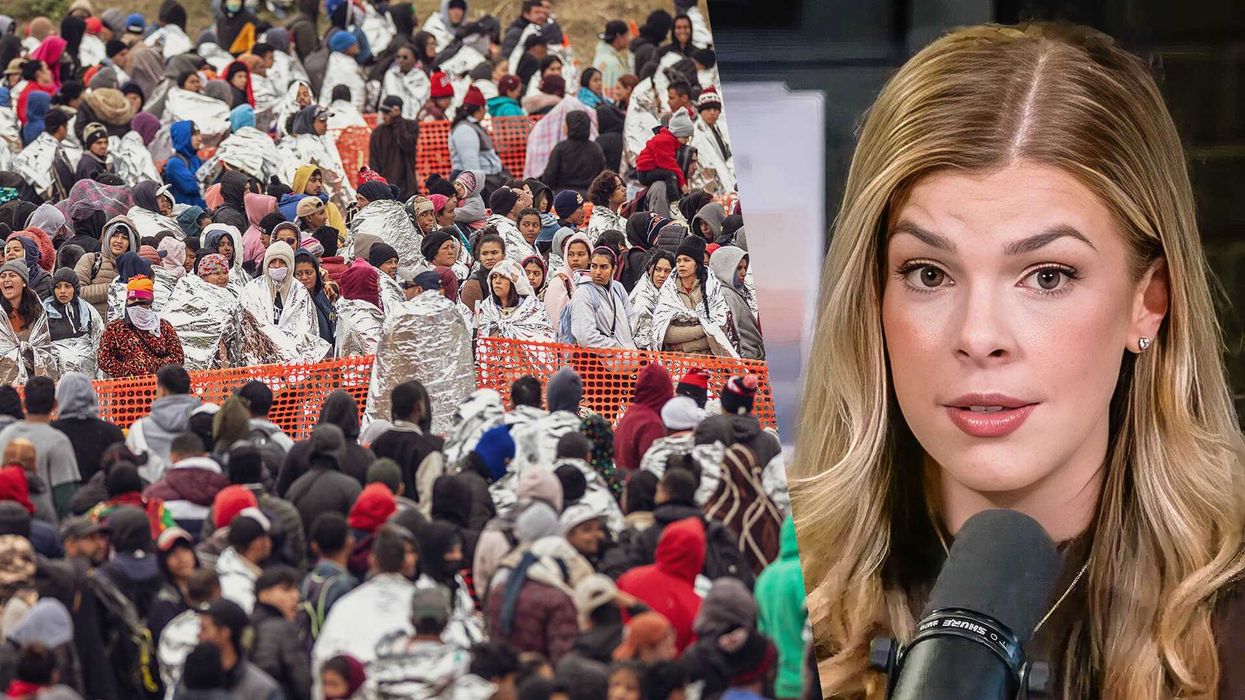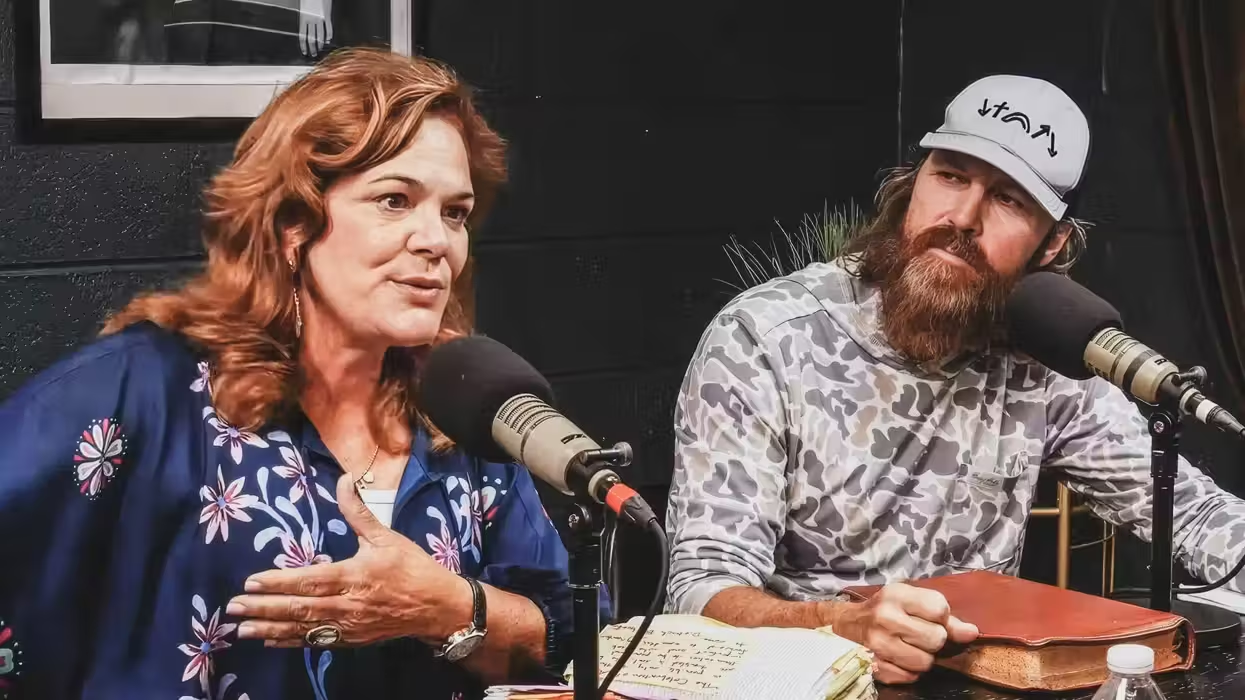
© 2026 Blaze Media LLC. All rights reserved.
This Photo of a Hanukkah Menorah Captured a Dark Moment in History. The Same Candelabra Now Offers Light and Inspiration.
December 22, 2014
"Generation to generation."
On the Jewish holiday of Hanukkah, just months before the Nazi Party assumed control of Germany, the wife of a prominent local rabbi captured a photo of her family’s menorah in a window overlooking a building decorated with Nazi flags.
 The 1932 photograph of the menorah in the window overlooking Nazi flags. (Photo courtesy Yad Vashem Artifacts Collection, loaned by Mansbach Family, Beit Shemesh Israel)
The 1932 photograph of the menorah in the window overlooking Nazi flags. (Photo courtesy Yad Vashem Artifacts Collection, loaned by Mansbach Family, Beit Shemesh Israel)
On the back of the photo in 1932, Rachel Posner wrote a short poem reflecting her dread at the things to come, and her defiance in the face of them.
She wrote:
"Death to Judah"So the flag says.
"Judah will live forever"
So the light answers.
 Rachel Posner wrote a defiant note on the back of the photo of the menorah. (Photo courtesy Yad Vashem Artifacts Collection, loaned by Mansbach Family, Beit Shemesh Israel)
Rachel Posner wrote a defiant note on the back of the photo of the menorah. (Photo courtesy Yad Vashem Artifacts Collection, loaned by Mansbach Family, Beit Shemesh Israel)
The menorah belonged to Rachel and her husband, Rabbi Dr. Akiva Posner, then the rabbi of the Jewish community in Kiel in northern Germany.
According to Yad Vashem, Israel's national Holocaust memorial, Rabbi Posner had written to a local newspaper expressing indignation at posters hanging in the city that read, "Entrance to Jews Forbidden."
After the letter was published, Posner was summoned by the local Nazi Party chairman to join him in a public debate. Yad Vashem said the debate was held under “heavy police guard.”
As anti-Jewish sentiment continued to rise, the Posners decided the time for Jews in Germany was over, and pleaded with their congregants to join them in emigrating to what would become Israel.
“Our grandparents saw the future and they already were worried about what would be,” Yehuda Mansbach, the rabbi's grandson, told TheBlaze by telephone in Israel. “My grandfather in 1933 told his community that Jews have no more future in Germany."
Mansbach said that before the Nazis rose to power, there were some 500 Jews in Kiel. After the Posners' intense urging, the vast majority had left: Mansbach said his grandparents told him there were less than a dozen Jews in the town by the time the Nazis came to round them up in 1939.
 The descendants of the Posners use the menorah in Israel every year at Hanukkah. (Photo courtesy: Yad Vashem Artifacts Collection, Loaned by Mansbach Family, Beit Shemesh Israel)
The descendants of the Posners use the menorah in Israel every year at Hanukkah. (Photo courtesy: Yad Vashem Artifacts Collection, Loaned by Mansbach Family, Beit Shemesh Israel)
Mansbach said that what Rachel Posner was referring to on the back of the photo was a passage from the biblical Book of Joel: “But Judah shall dwell for ever, and Jerusalem from generation to generation.”
Despite the dark clouds forming, she had faith that the Jews would survive “from generation to generation.”
Now, decades later, as if predicted by their family matriarch, Mansbach and the other descendants of the Posners of Kiel use the same copper-colored menorah every winter in celebration of Hanukkah. The rest of the year, it’s on loan to Yad Vashem.
“The menorah symbolizes that the future of the Jewish people is in Eretz Israel [the land of Israel], in the state of Israel and of course, living by the Torah of Israel,” Mansbach said.
And Mansbach has taken it upon himself to perpetuate the heritage, taking the menorah on the road with him and telling its story to others. Earlier this week, he traveled to Israel’s northern border, where his son currently serves in the Israeli military, and shared the history with the soldiers.
Want to leave a tip?
We answer to you. Help keep our content free of advertisers and big tech censorship by leaving a tip today.
Want to join the conversation?
Already a subscriber?
more stories
Sign up for the Blaze newsletter
By signing up, you agree to our Privacy Policy and Terms of Use, and agree to receive content that may sometimes include advertisements. You may opt out at any time.
Related Content
© 2026 Blaze Media LLC. All rights reserved.
Get the stories that matter most delivered directly to your inbox.
By signing up, you agree to our Privacy Policy and Terms of Use, and agree to receive content that may sometimes include advertisements. You may opt out at any time.






